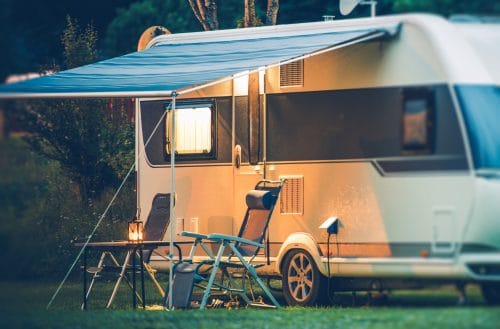
Learn about some of the factors that determine whether or not you can sue for personal injuries at a campground
Camping is a time-honored tradition for many families. Whether you sleep in a pup tent in the back country or in a Winnebago at a campground with all the amenities, there are risks involved in camping. So what happens if you get hurt while camping? Will you be able to sue anyone for damages related to your injuries? Here’s what you need to know.
Types of Hazards
There are many different hazards that you may encounter while camping, from dangerous wildlife to poorly maintained trails to wet floors in a campground shower house. In general, property owners are only expected to keep their premises in “reasonably safe” condition. This means they are only liable for injuries caused by hazards that:
- They knew about or should have reasonably known about
- Are not so obvious any reasonable person could have avoided them
- Are not identified with proper warning signs
For example, a campground operator would not be liable for injuries caused by perfectly healthy tree falling on your tent, since no reasonable person would be expected to predict the risk of this happening. But they would be liable if a dead tree fell on your tent, since if they had been taking proper care of their property, they would have noticed and removed the dead tree before it could fall.
Private vs Government Landowners
If you are injured while camping in a state park or on other public land, you will have much more difficulty winning a personal injury claim than if you were injured at a private campground. Government entities have given themselves several different types of immunity against liability claims:
- Trail immunity—protects government entities from liability for injuries caused by defects or hazards in any kind of trail or path used for recreational purposes
- Design immunity—protects government entities from liability for injuries caused by any dangerous condition that was part of an approved design plan
- Hazardous recreational activity immunity—protects government entities from liability for injuries incurred while the victim is participating in a “hazardous” activity
Tour Operators
If you are visiting a campground, park, or recreational area as part of a tour, it is possible that the tour operator might bear some portion of liability for your injuries. In order to win a personal injury claim against a tour company, you would have to prove that they had a duty of care towards you, that they breached that duty of care, and that you were injured as a result. One example might be if the tour company took you to an area that was not open to the public and you encountered a hazard there and were injured as a result.
Waivers
Many campgrounds and tour operators ask all their patrons to sign a waiver acknowledging the dangers they may encounter and releasing the campground or tour operator from liability for any injuries that may result. At first, it may seem like you have no chance of winning a personal injury lawsuit if you have signed such a waiver. But this is not always the case. It really depends on the language of the waiver and the circumstances of your injury. The best course of action is to ask an attorney for help.
Call The Law Offices of Larry H. Parker Now
If you have any questions about an injury suffered while camping, you can call us at 800-333-0000 for a free initial consultation with a personal injury attorney.



